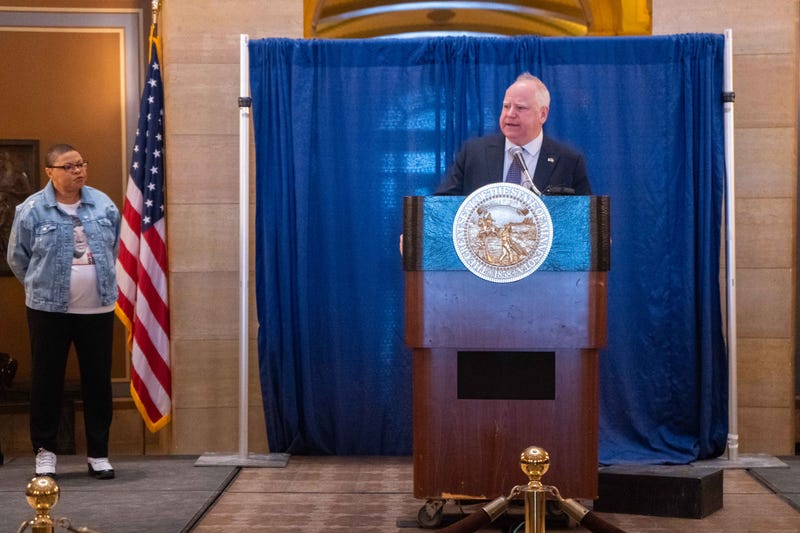
Minnesota’s Black-owned businesses are getting more much-deserved attention. The City of Minneapolis is hosting its very first Black Business Week, from Friday, July 19 to Saturday, July 27, with events aimed at spotlighting the city’s Black-owned businesses and providing network opportunities for them, whether they be established businesses, startups or new businesses in the works from Black would-be entrepreneurs.
Meanwhile, the state legislature passed a slew of new laws that many Black small business owners are likely to benefit from. In an interview, Minnesota Governor Tim Walz gave a nod to a group of Black small business owners for their role in securing new, expanded funding that will strengthen the state investment in businesses in communities of color.
In an interview on Sheletta Brundidge’s podcast Laughing with Letta, the DFL governor said his administration’s One Minnesota budget prioritized equity in its vision to make Minnesota the best state to live.
“Not only is it the right thing to do, to make sure that everyone gets an opportunity to thrive here, but the economic reality is, this state is going to be more and more dependent on Black owned businesses and the entrepreneurs that come out of that community,” Walz said.
Brundidge conceived, executed and presented the first Black Entrepreneurs Day at the Capitol on Feb. 3. The event brought some 300 Black small business owners to St. Paul for a rally in the Rotunda to put their particular challenges front and center. They spoke up as legislators and policy makers looked at ways to allocate the historic $17 Billion dollar state budget surplus.
Attended by the governor, lieutenant governor, attorney general, cabinet officials and lawmakers from both sides of the aisle, the event also included one-on-one meetings between the Black business owners and legislators and a luncheon when they broke bread together.
“Thanks for that, putting that on,” Walz told Brundidge. “We need to make sure this is the place where entrepreneurs can succeed. Most of us recognize there have been historic barriers On so many fronts, generational wealth, home ownership, business ownership, access to business capital.”
The governor cited money to rebuild Lake Street and minority-owned businesses after the civil unrest and grants coming through DEED (the Minnesota Department of Employment and Economic Development) providing money for workforce development and access to to capital.
He pointed to other specific initiatives that he believes will be helpful to small businesses in communities of color:
-$5 million for Launch Minnesota, a statewide ]effort to accelerate business startup growth of startups and amplify Minnesota as a national leader in innovation.
-$18 million for the Small Business Partnerships Program to help meet the demand for business development and technical assistance for 27,000 businesses, with additional funding earmarked to benefit underserved populations including minority-owned businesses.
-$10 million for the Expanding Opportunity Fund to increase the capitalization of nonprofit lenders whose focus is largely on BIPOC and women-owned businesses and businesses in Greater Minnesota, enabling them to make up to 8,000 loans to small business.
Walz added that other measures passed by the legislature will be “transformational” in helping small businesses with their recruiting and retention of workers.
“Access to health care, access to paid family medical leave, these are things small businesses need to compete with big businesses,” he said. “All the big employers already offer (paid family leave) because it’s how they attract employees. We want small entrepreneurs to say, come work for me, I can give you a living wage, we’ve got paid family leave, we’ve got health care.“
Despite the victories in the session, Walz acknowledged that Minnesota still has a long way to go in achieving true equity.
“There are still gaps—in health care, educational outcomes, home ownership,” he said. “This generation can’t wait for another 20 years to fix it.”


